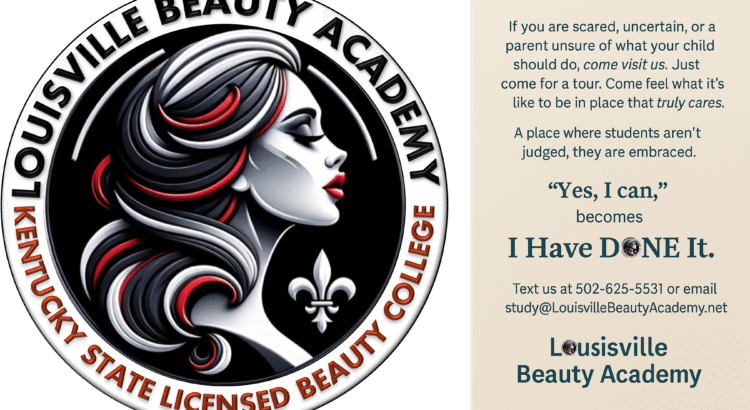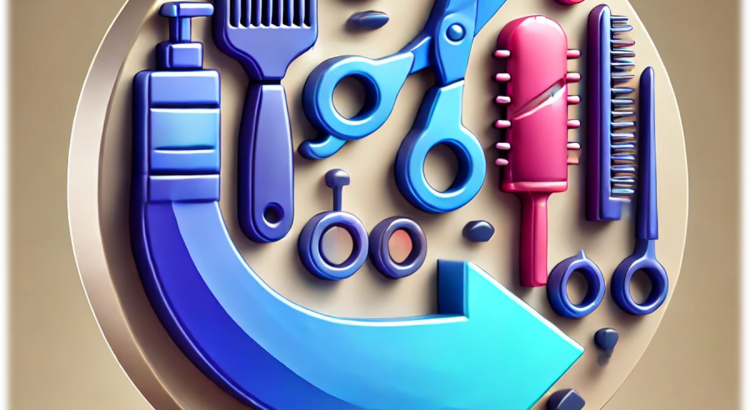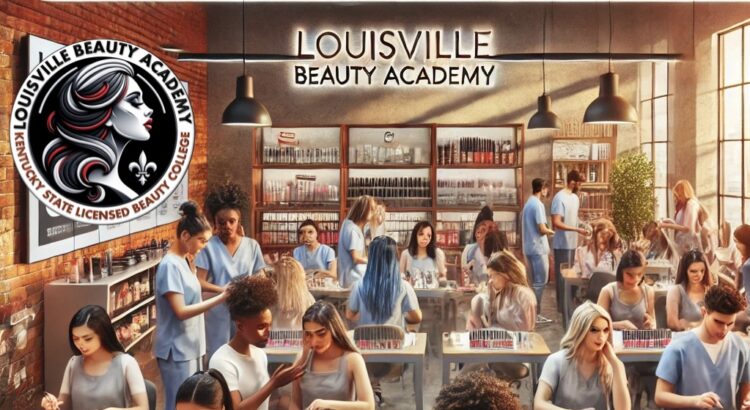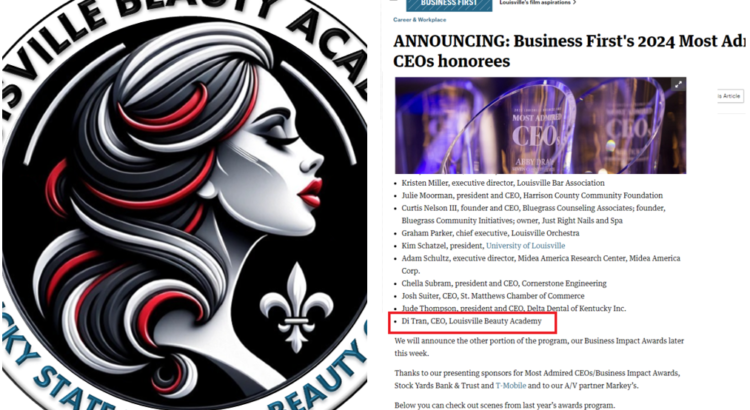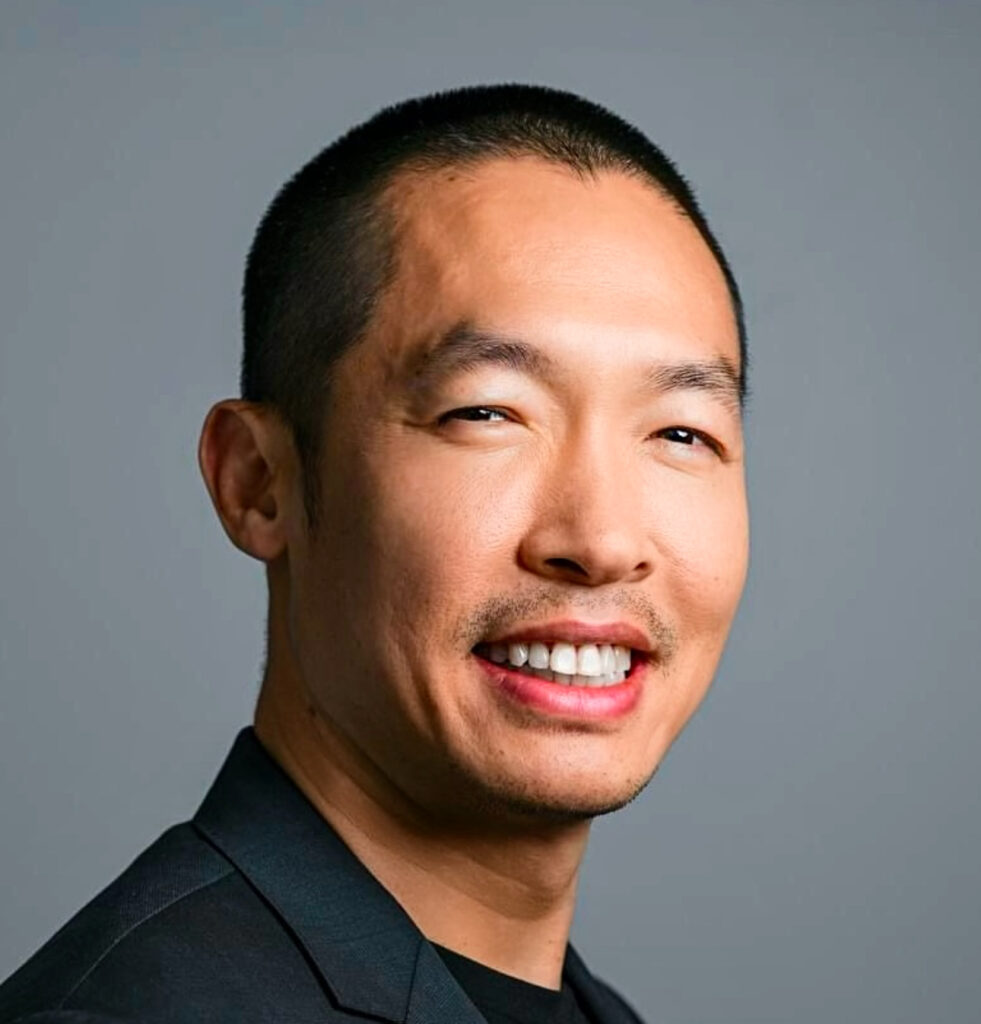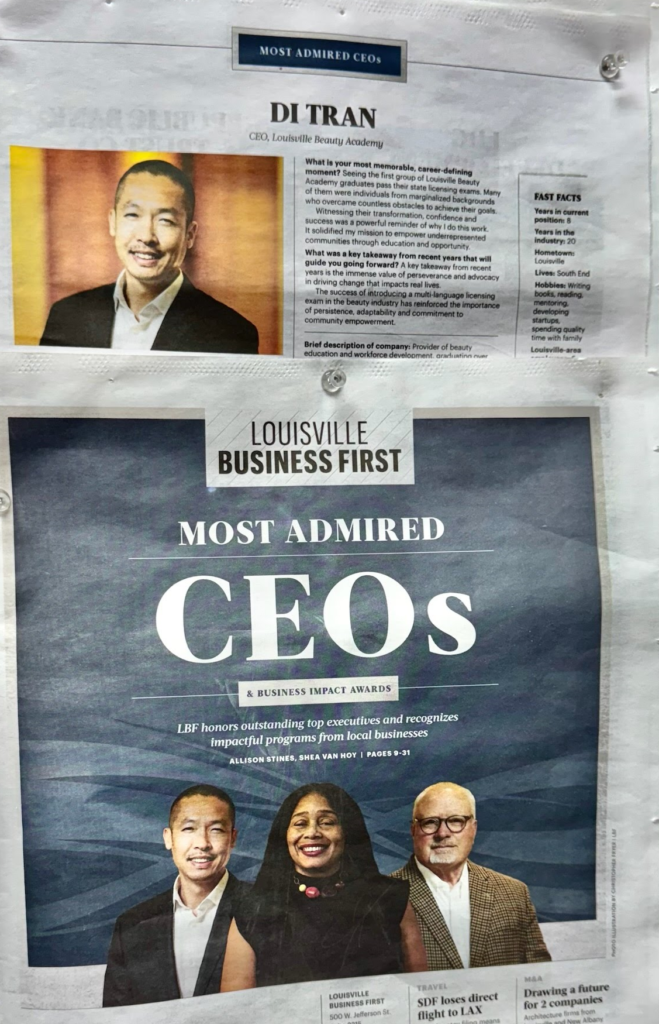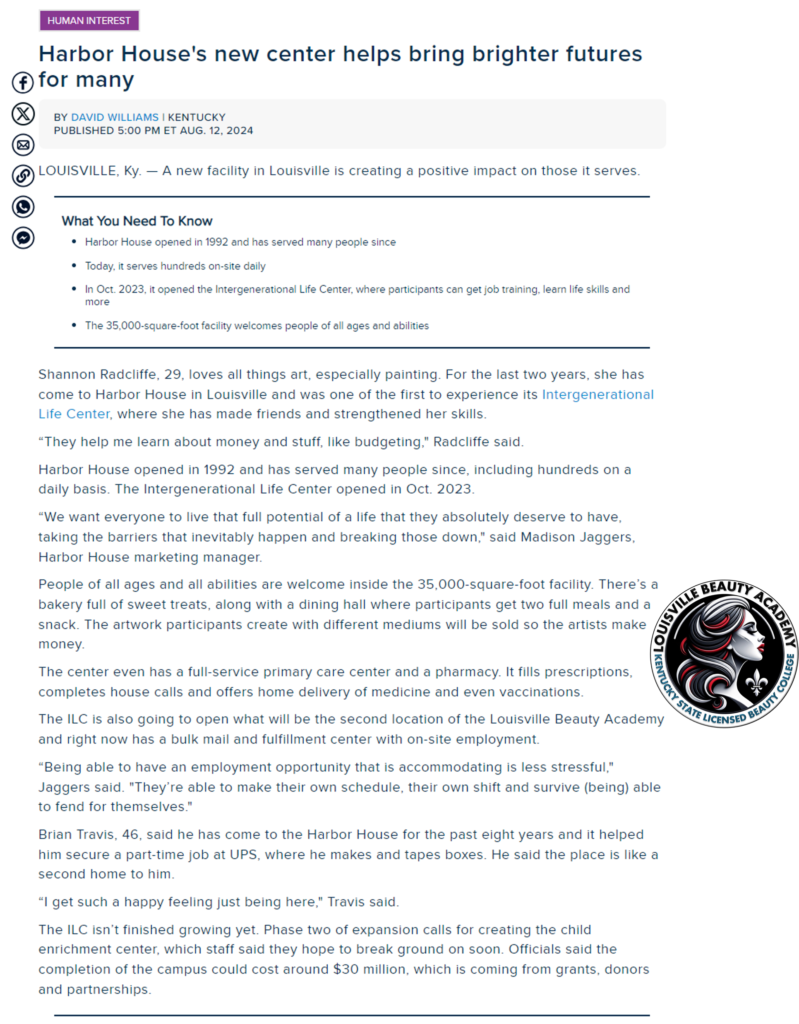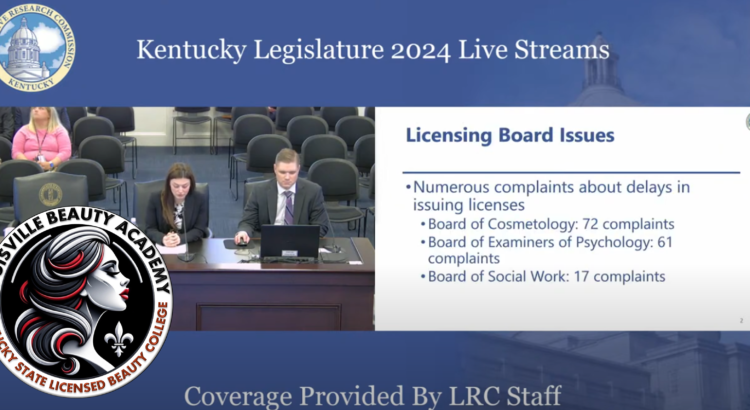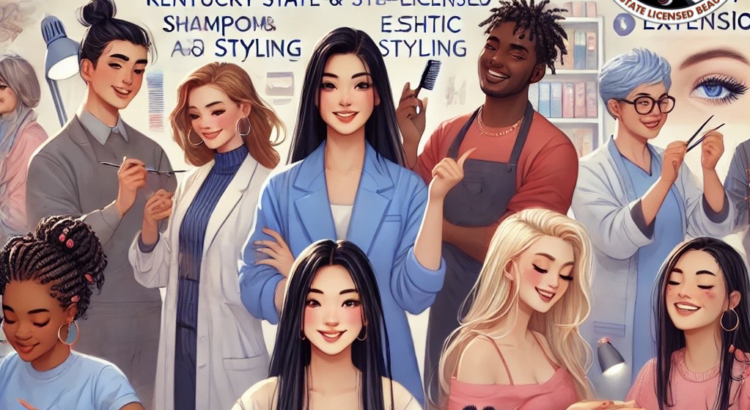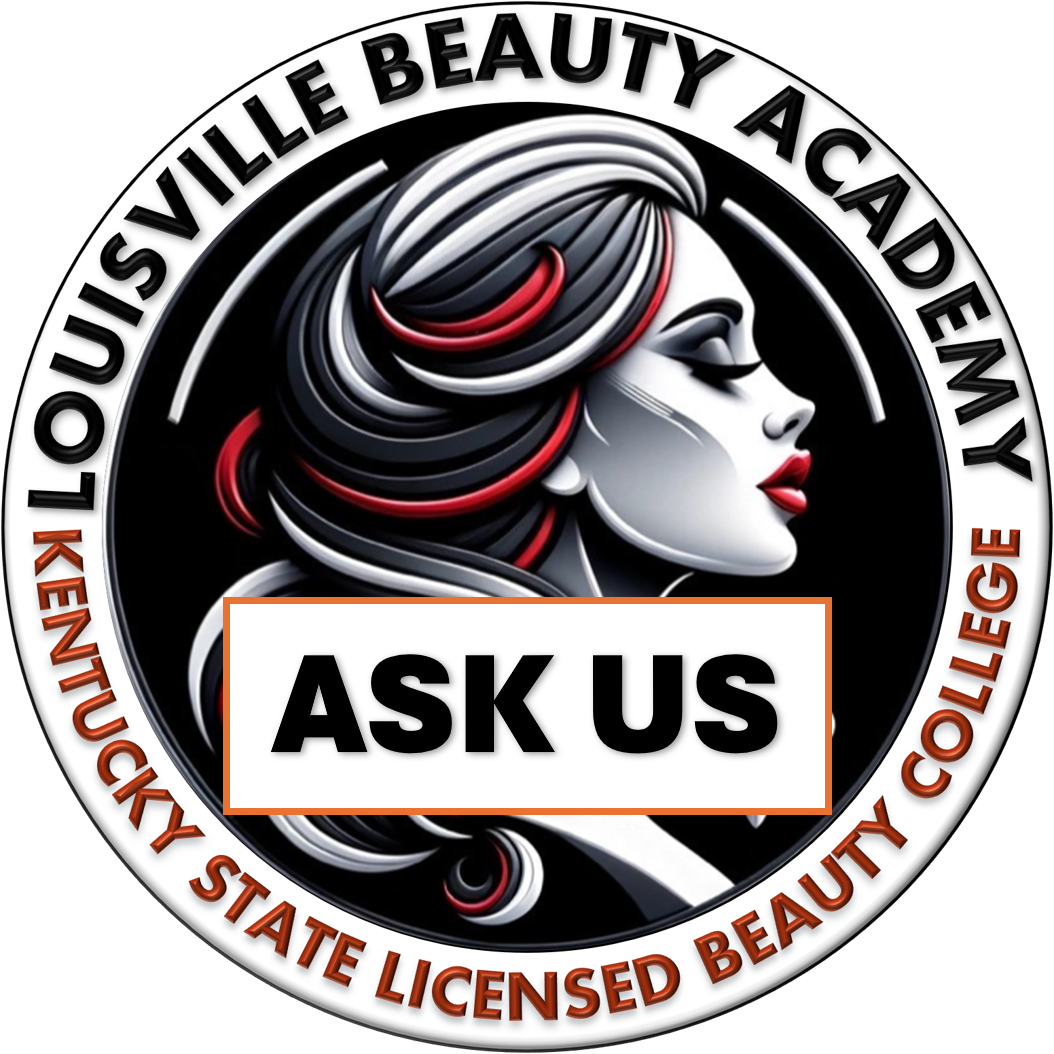Louisville Beauty Academy is a proud Kentucky State-Licensed and State-Accredited beauty college, deeply rooted in the community and committed to innovation in human-centered education. More than just a training institution, LBA is a leader in transforming cosmetology into a public wellness tool—bridging beauty education with real-world impact. Through its student-led service model, LBA has become a proven host of social impact initiatives, positioning itself as a national example for how beauty services can combat loneliness, support elder care, and build healthier, more connected communities. Its programs train not only skilled professionals, but also empathy-driven social wellness providers who uplift lives through care, dignity, and human connection.
1. Problem Identified:
Loneliness among elderly, disabled, and isolated adults is a public health crisis—linked to increased risks of heart disease, depression, dementia, and billions in healthcare costs.
2. Proven Solution – Already in Practice:
Louisville Beauty Academy has already been successfully delivering free beauty services—haircuts, manicures, facials, and more—to elders and disabled individuals in Kentucky through its student training program.
This proven model:
- Treats grooming services as social medicine
- Fights loneliness with human connection
- Doubles student training hours as meaningful community service
3. Health & Economic Impact:
- Reduces depression, anxiety, and medication dependency
- Improves mental health, dignity, and emotional wellbeing
- Saves Kentucky healthcare dollars by preventing loneliness-related illnesses and ER visits
- Creates empathetic, career-ready beauty professionals
4. Quantified Pilot Results (Ongoing):
- Thousands of free services delivered annually
- Hundreds of seniors and adults served
- 30,000+ student service hours provided
- Estimated $2–3 million in healthcare cost savings annually
- Over $500,000 in community value through donated services
5. Vision for Statewide and National Expansion:
With its model already working and yielding measurable benefits, Louisville Beauty Academy is positioned to scale this initiative across Kentucky, then nationwide, through partnerships with:
- Senior centers
- Healthcare providers
- Government agencies
- Philanthropic and industry supporters
Louisville Beauty Academy is not proposing an idea—it’s demonstrating a working solution to one of America’s most overlooked health and social challenges.
Beauty for Connection Initiative
by Louisville Beauty Academy – Free Beauty Services to Combat Loneliness
 Social connection and caring touch can significantly improve seniors’ well-being, addressing the “loneliness epidemic” among older and disabled adults.
Social connection and caring touch can significantly improve seniors’ well-being, addressing the “loneliness epidemic” among older and disabled adults.
Background: Loneliness as a Health Crisis
Loneliness and social isolation among seniors and disabled adults have reached epidemic levels. More than one-third of older Americans report feeling lonely
weforum.org, which has severe health consequences. Chronic loneliness is as harmful as smoking 15 cigarettes a day
weforum.org
pmc.ncbi.nlm.nih.gov, contributing to higher rates of heart disease, stroke, dementia, depression and even early death. In fact, socially isolated older adults face a 29% increased risk of heart disease and 32% higher risk of stroke
info.pyxhealth.com, and a 50% greater risk of dementia
info.pyxhealth.com. This isolation also drives up healthcare use – loneliness literally “breaks the heart” both figuratively and biologically. Medicare currently spends an extra $6.7–7 billion per year caring for socially isolated older adults in the U.S.
weforum.org due to higher rates of hospitalization and illness. In Kentucky alone, this translates to tens of millions in avoidable health expenditures from loneliness-related conditions. The human and economic costs make it clear that innovative interventions are urgently needed to reconnect isolated individuals with their community and improve their health.
The “Beauty for Connection” Pilot – Overview
Beauty for Connection is a proposed pilot program led by Louisville Beauty Academy in Kentucky to proactively combat loneliness by delivering regular free beauty and grooming services to elderly, disabled, and socially isolated adults. This initiative treats beauty care – haircuts, manicures, pedicures, facials, shaves, and gentle massage – not as vanity services but as critical tools for human contact, dignity, and mental health. The program will leverage the beauty academy’s student training clinic and community partnerships to provide these services at no cost to recipients:
- Service Delivery: Cosmetology students and instructors will offer free weekly or monthly grooming sessions to seniors and disabled adults in nursing homes, community centers, rehab facilities, and home visits. Each session includes personal grooming (hair trim/styling, nail care, skin care) along with friendly conversation and caring human touch.
- Funding Model: The services are funded through tuition-based training and volunteer hours. Beauty Academy students must complete service hours for licensing – those hours will be channeled into this community service, under instructor supervision. The Academy’s operating costs are covered by student tuition, so services can be provided free. Additional support (products, travel costs) will come from community donations, local business sponsors, and grants. In essence, the students’ learning time doubles as a public service, creating a win-win: students gain experience, while isolated community members receive free care.
- Goals: Reignite a sense of self-worth and social connection in participants through regular personal care and friendly interactions. Reduce feelings of loneliness and depression by making participants feel “seen” and cared for. Improve health indicators associated with isolation (mood, blood pressure, stress) and ultimately reduce reliance on medications or emergency healthcare linked to loneliness. This pilot will initially serve Louisville-area seniors and adults with disabilities, with a vision to expand across Kentucky after demonstrating impact.
Why Beauty Services? Grooming and human touch directly address key aspects of loneliness. A simple haircut or manicure provides much-needed human contact, conversation, and a confidence boost to someone who might go days without meaningful interaction
louisvillebeautyacademy.net. Unlike clinical visits, beauty appointments are fun, relaxing events people look forward to, making them an ideal vehicle to deliver “social medicine.” By meeting a basic human need for touch and self-care, the Beauty for Connection program fills a critical gap in current approaches to senior care.
Health Benefits of Touch & Grooming for Seniors (Evidence)
Numerous studies in geriatrics and psychology show that caring touch and personal grooming have measurable benefits for the mental and physical health of older and disabled individuals:
- Reduced Stress & Anxiety: Physical touch triggers the release of oxytocin (“the bonding hormone”) and serotonin while lowering cortisol (the stress hormone). Even a simple hand massage during a manicure can induce relaxation and reduce anxietyautumnleaves.com. Tactile massage therapy has been shown to help lonely older adults feel more calm and secure by activating pleasure responses in the brainpubmed.ncbi.nlm.nih.gov. This indicates that a compassionate touch on the shoulder or a gentle scalp massage during a haircut can biologically alleviate stress and loneliness.
- Improved Mood & Depression Relief: Regular grooming and beauty care significantly improve self-esteem and mood in seniors. One study found that a beauty care program improved self-rated health and reduced depression in community-dwelling older adultsautumnleaves.com. Participants reported feeling happier and more positive about life when they maintained their personal appearance. The act of being pampered and looking one’s best can rekindle a sense of normalcy and joy, even in those with chronic illness or disability.
- Sense of Dignity and Self-Worth: Personal care is closely tied to dignity. Many elderly or disabled individuals lose the ability to care for their hair, skin, or nails, which can erode their self-worthlouisvillebeautyacademy.net. Providing free grooming restores a feeling of being “put together” and respected. Louisville Beauty Academy’s experience shows that clients with disabilities experience boosts in mental and emotional health when they feel seen and valued through groominglouisvillebeautyacademy.net. For seniors, a fresh haircut or styled hairdo can “reignite their sense of self,” encouraging social interaction and personal pridelouisvillebeautyacademy.net.
- Physical Health and Relaxation: Grooming sessions often include gentle massage of the scalp, hands, or feet which can improve circulation and reduce pain for conditions like arthritis. Relaxation from these sessions can lower blood pressure and improve sleep. Research in nursing homes found that regular touch and massage therapy with residents led to better appetite and fewer agitation episodes, indicating overall health benefits. In short, beauty services double as a form of preventive care – reducing stress-related health flare-ups and improving participants’ overall well-being.
Beauty Services as “Social Prescribing”
Healthcare providers worldwide are increasingly recognizing that non-medical interventions – like social activities, arts, and community engagement – can effectively treat loneliness and mild mental health issues. This approach, known as social prescribing, connects patients with community services to improve their well-being. Beauty for Connection aligns perfectly with social prescribing principles, treating salon visits as a therapeutic activity that doctors and caregivers could “prescribe” for isolated individuals. Evidence supporting this approach includes:
- Reduced Anxiety and Depression: A broad review of social prescribing programs found they significantly reduce symptoms of anxiety and depression in participantseurekalert.org. By engaging in enjoyable activities and building social ties, individuals showed improved mental health comparable to conventional treatments. A friendly grooming session can similarly uplift mood and provide emotional support.
- Lower Loneliness and Social Isolation: Simply spending time in a salon environment or chatting with a stylist can counteract loneliness. A 2019 BMJ study cited in a social prescribing review showed that community activities “significantly reduce loneliness”, which is a major risk factor for health declineeurekalert.org. Beauty services inherently involve one-on-one attention and conversation, functioning as informal counseling and companionship. A shy senior who barely speaks at home may open up to a cosmetology student while having her hair set – forging a human connection that lasts beyond the appointment.
- Increased Social Engagement: Regular salon visits give participants something to look forward to and talk about, encouraging them to engage more with peers. For example, residents in a senior living community might start coming out of their rooms to gather on “Beauty Day.” This program can serve as a gateway to broader community involvement – once seniors feel better about their appearance and confidence, they may be more likely to attend group meals, exercise classes, or church events, further breaking the cycle of isolation.
- Reduced Healthcare Utilization: Social prescribing trials in the UK have observed tangible drops in medical visits when patients engage in prescribed social activities. One analysis of over 1,700 patients found a 42% reduction in GP (doctor) appointments after 1 year among those referred to social activities, whereas a control group had only a 5% reductionsocialprescribingacademy.org.uk. Other studies note fewer emergency room visits and hospital admissionseurekalert.org. The beauty services program similarly aims to keep people healthier and more stable, potentially preventing unnecessary doctor visits driven by loneliness-related maladies (such as anxiety episodes, or “failure to thrive” symptoms). Each time a senior gets their hair done instead of calling 911 out of desperation or showing up at a clinic just to be around people, the healthcare system saves resources.
Community Engagement: The Beauty for Connection pilot will also strengthen intergenerational ties. Cosmetology students gain communication skills and empathy by working with seniors and people with disabilities, while those clients benefit from youthful energy and attention. These interactions foster understanding and friendship across age groups. In a very real sense, a beauty school becomes a community hub where health, education, and social life intersect. Louisville Beauty Academy has described its campus as “a sanctuary where the elderly can alleviate loneliness and find joy in their golden years” by engaging with students and instructors during near-free services
louisvillebeautyacademy.net. This dynamic proves that structured beauty sessions can function as therapeutic social encounters, much like a support group or social club, but with the added benefit of improving the person’s appearance and confidence.
Economic Impact and Healthcare Savings
A core premise of this initiative is that investing in loneliness reduction will yield significant healthcare savings for Kentucky and beyond. By addressing the root social causes of many health issues, the program can help avoid expensive treatments down the line. We quantify the potential economic benefits as follows:
- Preventing Loneliness-Related Illness: Loneliness contributes to higher rates of chronic illnesses like heart disease, depression, and dementiainfo.pyxhealth.com, which are costly to manage. By engaging isolated adults in regular positive activities, we anticipate improvements in blood pressure, mental stability, medication adherence, and other health measures. Even a modest reduction in heart attacks, strokes, or falls (which are more likely when seniors are depressed and inactive) could save thousands of dollars per person annually in acute care costs. For instance, if 100 participants avoid just one emergency room visit each in a year thanks to better mental well-being and oversight from regular contact, that represents an estimated $150,000 or more in healthcare savings (at roughly $1,500 per ER visit).
- Medicare and Medicaid Savings: A 2017 AARP study found that lack of social contact was associated with $6.7 billion in additional Medicare spending per year nationwideweforum.org. Scaled to Kentucky’s population size, this implies that social isolation among Kentucky seniors might be costing on the order of $90+ million annually in extra Medicare and Medicaid expenses (e.g. hospitalizations, nursing home placements). If this pilot program can measurably reduce loneliness for a subset of high-risk individuals, the state could see a drop in expenditures such as emergency mental health services, nursing facility days, or costly interventions for stress-aggravated conditions. For example, reducing unnecessary hospital readmissions (26% of which are potentially avoidable in older patientsinfo.pyxhealth.com) by providing social support could save Kentucky’s healthcare system substantial sums.
- ROI of Preventive Social Care: The cost to deliver a beauty service session is minimal – essentially the student time (which is already part of training) and supplies (a few dollars’ worth of shampoo or lotion). These upfront costs are tiny compared to the medical costs of untreated loneliness. If a depressed, homebound senior starts interacting and regains appetite and strength, they might avoid progression to expensive home health or antidepressant treatments. In economic terms, social grooming visits likely yield a high return on investment (ROI). For every dollar invested in volunteer coordination, salon supplies, and transportation, the healthcare system could save several dollars in reduced treatment and medication costs. Over a year, one participant’s improved health (fewer doctor visits, better medication adherence, delayed entry into assisted living) might save say $1,000 – $3,000 in medical costsweforum.org. Multiply that across hundreds of participants and the savings quickly reach hundreds of thousands annually, far outweighing program costs.
- Value of Student Service Hours: In addition to healthcare savings, the program generates economic value in the form of services delivered. If a typical haircut or manicure costs $20–$30, offering it free is a direct benefit to the individual’s limited income. We will track the number of services provided and their market value. These figures can be used to demonstrate community ROI to donors and policymakers. The intangible value of improved quality of life is harder to price, but studies show that reducing loneliness correlates with higher life satisfaction and even longevity, which carries value for families and society.
Projected Annual Impact in Kentucky (Pilot Expansion)
If the Beauty for Connection model were implemented statewide in Kentucky, the annual reach and benefits would be substantial. Below are projected impact metrics for a full-scale Kentucky program (based on scaling up the Louisville pilot model):
- Individuals Served (Annual): ~5,000 socially isolated seniors and adults with disabilities across Kentucky receive free beauty/grooming services regularly. This assumes about 100 people per county or service area, focusing on those identified as high-risk for loneliness (through senior centers, churches, home care agencies, etc.).
- Service Sessions Provided: ~15,000 – 20,000 total beauty service sessions per year statewide. Many participants would receive services roughly once per month. This includes haircuts, shaves, manicures, pedicures, facials, and gentle massages. (For example, 5,000 individuals x average 3 sessions each = 15,000 sessions.)
- Monetary Value of Services: $450,000 – $600,000 worth of services delivered at no cost to recipients. Calculation: If each of the 15,000 sessions is valued at an average $30 (typical salon price for a basic service), the total in-kind value is $450k. This is money saved for low-income seniors and people with disabilities, effectively putting half a million dollars’ worth of care back into communities.
- Volunteer Student Hours: ~30,000 student service hours contributed per year (assuming each session lasts ~2 hours including setup and travel). These are hours of hands-on experience for beauty students that double as community service. It equates to dozens of full-time-equivalent workers addressing social needs without added taxpayer cost.
- Healthcare Cost Savings: $2 – $3 million per year in estimated healthcare savings in Kentucky due to improved health and reduced loneliness-related medical utilization. This projection assumes even a modest savings of $500 per person per year on average (through fewer clinic visits, avoided medical complications, etc.), which across 5,000 participants is $2.5 million. If the intervention prevents more serious events for some (e.g. averted hospital stays), the savings could be significantly higher. These figures will be validated by tracking participants’ health outcomes in collaboration with healthcare providers (e.g. monitoring ER visits or depressive symptom scores before and after engaging in the program).
- Quality of Life Improvements: Though harder to quantify, we expect to see improvements in standardized measures: e.g. average loneliness scores dropping by 20%, depression/anxiety scales improving, and participant satisfaction above 90%. We will collect testimonials and perhaps use tools like the UCLA Loneliness Scale to measure impact. The societal benefit of 5,000 happier, more connected Kentuckians is immense – fostering more community volunteerism and neighborly engagement as these individuals regain confidence to participate in society.
These numbers illustrate that a relatively low-cost program can touch thousands of lives and yield a strong societal return. If Kentucky’s pilot succeeds, it creates a template to reach millions nationally. We will use the data and success stories from the pilot to advocate for broader adoption and funding.
Scaling Nationally: A Public-Private Solution to Loneliness
Upon proving the model in Kentucky, the Beauty for Connection Initiative can be scaled up nationally as a collaborative public-private effort to tackle the loneliness epidemic. Key elements of the scale-up plan include:
- Leverage Existing Networks: The United States has over 1,200 accredited cosmetology schools (and thousands more smaller beauty programs)ibisworld.com and countless community salons. These represent an untapped workforce for social care. By partnering with cosmetology schools, state boards of cosmetology, and beauty industry groups, we can expand the program to other states. Each beauty school or training program can adopt a “community care” module where students perform a certain number of free services for seniors/disabled in their area. This could be incentivized through certification credits or awards. Major salon franchises could also volunteer certain days for free senior services.
- Integration with Healthcare & Agencies: To truly embed this in the social safety net, we will work with healthcare providers and aging agencies. Doctors, senior centers, Veterans Affairs, and home health agencies can “prescribe” or refer patients to the beauty service program as part of their care plan. For example, a primary care doctor who notices a patient is socially withdrawn could write a referral for monthly salon visits, which a local beauty school fulfills. Area Agencies on Aging and senior nonprofits (like AARP chapters) can help identify participants and possibly provide transport. This public-private linkage ensures those who need the service most are reached systematically.
- Funding and Sponsorship: Scaling will require funding beyond volunteer hours. We will seek a mix of public and private funding: State and federal grants (especially through Departments of Health and Human Services focusing on aging, mental health, or Veterans affairs) to support coordination and expansion; Private sector sponsorships from the beauty industry (product companies donating supplies, corporate social responsibility grants from salons and spas); and philanthropic contributions from healthcare organizations (insurers or hospital systems that recognize the cost savings and community benefit). Because this model reduces healthcare utilization, health insurers (e.g. Medicare Advantage plans) may sponsor or even include beauty/social visits as a covered benefit. The public sector could match private donations in a social impact fund, making it a true public-private partnership.
- National Awareness and Branding: We will develop the “Beauty for Connection” brand to be recognizable and appealing for fundraising. This proposal itself gives the initiative a name and structure that can be used in outreach. A national campaign will highlight stories like a 90-year-old who smiles again after getting her hair done, or a disabled veteran who says the free shaves make him feel human. These narratives will build public support. We will align our message with the U.S. Surgeon General’s call to address loneliness and position Beauty for Connection as an innovative, community-driven answer. As noted by the National Hair & Beauty Federation in the UK, integrating hair/beauty services into health and wellbeing strategies is a forward-thinking approachbeautybacked.com. Our initiative can serve as a flagship example of that in the United States.
- Scalable Training & Toolkit: To ensure consistency and quality as we expand, Louisville Beauty Academy will develop a training toolkit for other schools. This will include guidelines on working with elderly/disabled clients (techniques for gentle handling, communication tips for dementia, etc.), safety and hygiene protocols for in-home or nursing home settings, and curriculum integration tips. Essentially, we will create a replicable model that any beauty school in any state can adopt with minimal hurdles. By sharing our playbook and even offering mentorship to other schools, we can rapidly scale the model to cities and rural areas nationwide.
- Policy Support: Ultimately, we will advocate for policy changes that embed programs like this into the fabric of care. For instance, states could allow cosmetology training hours to count toward community service requirements, or federal programs could allocate funding for “social care” initiatives. The initiative’s success could inform new policies where healthcare systems partner with beauty/wellness providers as part of holistic patient care (much like “Meals on Wheels” is supported as nutrition for seniors, “Beauty for Connection” could be supported as mental health nutrition). By demonstrating results, we aim to influence policy to formally recognize loneliness-reduction services as a reimbursable and necessary part of healthcare.
National Impact: If scaled to all 50 states, a program like Beauty for Connection could serve an estimated 500,000+ seniors and isolated adults annually, given the larger pool of potential participants and volunteers. This could translate into billions in healthcare savings if even a fraction of those individuals experience improved health. It also strengthens communities by re-integrating marginalized members and giving students a sense of purpose in serving others. The model embodies a compassionate society where public institutions (health agencies, schools) and private entities (beauty businesses, nonprofits) collaborate to heal social ills.
Conclusion & Future Vision
Beauty for Connection represents a new vision of how we care for our aging and vulnerable population – treating beauty and grooming services as a form of healthcare for the heart and soul. By simply combing hair, clipping nails, or massaging hands, we deliver dignity, human touch, and joy to those who need it most. This pilot proposal outlines a practical, cost-effective way to reduce loneliness, improve health outcomes, and save healthcare dollars, all while providing valuable training for students and strengthening community bonds. The stats are compelling: reducing loneliness even slightly can lower depression and heart disease, and save Kentucky and the nation millions in medical costs
weforum.org. The benefits are backed by medical literature and real-world examples – from studies on touch therapy
autumnleaves.com and beauty care’s mental health effects
autumnleaves.com, to social prescribing’s success in reducing anxiety and doctor visits
eurekalert.org.
Louisville Beauty Academy is poised to lead the way, turning its motto of “Creating Smiles & Empowering Lives” into reality for thousands of Kentuckians. Over the next year, we will refine this program model, build partnerships, and rigorously track outcomes. With clear evidence of success, we will seek to expand statewide and inspire similar programs nationally. Our long-term vision is a United States where no senior feels alone and every person has access to basic grooming and companionship as part of their care. In that future, beauty professionals will be recognized as frontline caregivers combating the loneliness epidemic one haircut, one hand-hold at a time. This public-private initiative can become a cornerstone in the movement to treat social isolation as a public health priority, delivering both beauty and connection to those who need hope and human contact. Together, we can make Kentucky a model for the nation in how we address loneliness with creativity, compassion, and measurable impact.
Name of Initiative: Beauty for Connection – Kentucky Pilot (Louisville Beauty Academy)
Primary Outcomes Expected: Reduced loneliness and depression scores; improved mood and social engagement; healthcare utilization declines; high participant satisfaction.
Annual Reach Goal (KY): 5,000 served, $500k in services, $2M+ healthcare savings.
Long-Term Goal: Scale program nationwide as a sustainable public-private partnership, leveraging the beauty industry in service of public health and ending the loneliness epidemic in our communities.
Sources: Loneliness health impacts and costs weforum.org
info.pyxhealth.com; Benefits of grooming and touch
autumnleaves.com; Social prescribing outcomes
eurekalert.org; Louisville Beauty Academy community impact
louisvillebeautyacademy.net
Disclaimer
Louisville Beauty Academy is a Kentucky State-Licensed and State-Accredited educational institution. All information shared through this initiative, including health-related benefits, economic projections, and community impact statements, is based on publicly available research, institutional experience, and qualitative observation.
We do not provide legal, medical, or financial advice. The content presented in this report is for general informational and educational purposes only. While every effort has been made to ensure accuracy, readers are encouraged to consult qualified professionals and appropriate agencies for official guidance.
Louisville Beauty Academy does not advocate for or against any specific regulation, agency, or healthcare treatment. We share this information to foster transparency, dialogue, and community-based innovation in the fields of beauty education and wellness.
